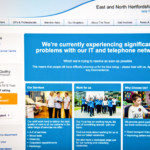 An anonymous reader writes: Researchers have detected a new worm that is spreading via SMB, but unlike the worm component of the WannaCry ransomware, this one is using seven NSA tools instead of two. Named EternalRocks, the worm seems to be in a phase where it is infecting victims and building its botnet, but not delivering any malware payload. EternalRocks is far more complex than WannaCry’s SMB worm. For starters, it uses a delayed installation process that waits 24 hours before completing the install, as a way to evade sandbox environments. Further, the worm also uses the exact same filenames as WannaCry in an attempt to fool researchers of its true origin, a reason why the worm has evaded researchers almost all week, despite the attention WannaCry payloads have received. Last but not least, the worm does not have a killswitch domain, which means the worm can’t be stopped unless its author desires so. Because of the way it was designed, it is trivial for the worm’s owner to deliver any type of malware to any of the infected computers. Unfortunately, because of the way he used the DOUBLEPULSAR implant, one of the seven NSA hacking tools, other attackers can hijack its botnet and deliver their own malware as well. IOCs are available in a GitHub repo. Ars Technica quotes security researchers who say “there are at least three different groups that have been leveraging the NSA exploit to infect enterprise networks since late April… These attacks demonstrate that many endpoints may still be compromised despite having installed the latest security patch.” Read more of this story at Slashdot.
An anonymous reader writes: Researchers have detected a new worm that is spreading via SMB, but unlike the worm component of the WannaCry ransomware, this one is using seven NSA tools instead of two. Named EternalRocks, the worm seems to be in a phase where it is infecting victims and building its botnet, but not delivering any malware payload. EternalRocks is far more complex than WannaCry’s SMB worm. For starters, it uses a delayed installation process that waits 24 hours before completing the install, as a way to evade sandbox environments. Further, the worm also uses the exact same filenames as WannaCry in an attempt to fool researchers of its true origin, a reason why the worm has evaded researchers almost all week, despite the attention WannaCry payloads have received. Last but not least, the worm does not have a killswitch domain, which means the worm can’t be stopped unless its author desires so. Because of the way it was designed, it is trivial for the worm’s owner to deliver any type of malware to any of the infected computers. Unfortunately, because of the way he used the DOUBLEPULSAR implant, one of the seven NSA hacking tools, other attackers can hijack its botnet and deliver their own malware as well. IOCs are available in a GitHub repo. Ars Technica quotes security researchers who say “there are at least three different groups that have been leveraging the NSA exploit to infect enterprise networks since late April… These attacks demonstrate that many endpoints may still be compromised despite having installed the latest security patch.” Read more of this story at Slashdot.
Visit link:
New SMB Worm Uses Seven NSA Hacking Tools. WannaCry Used Just Two
